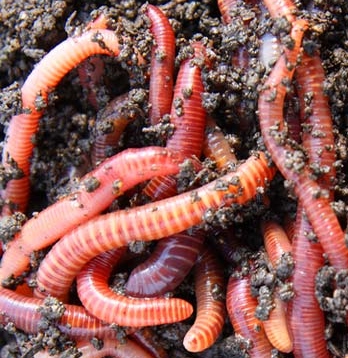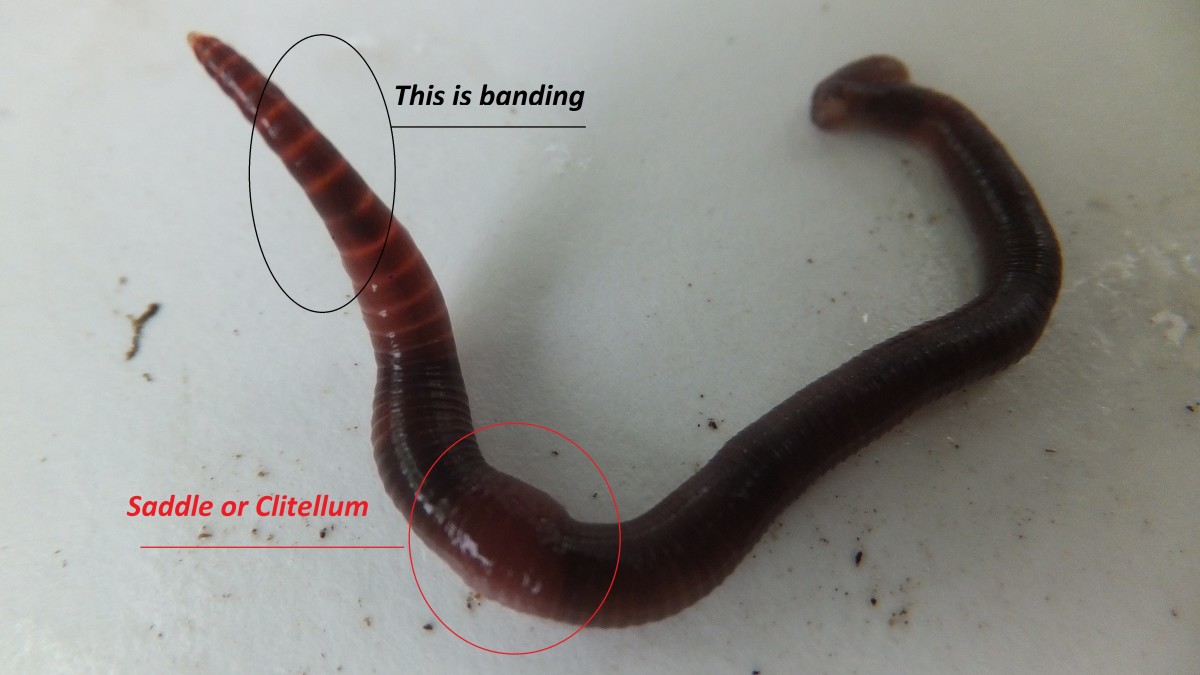Red Wiggler Worms - Efficient Decomposers for Your Garden Compost Bin
Red Wiggler Worms - Efficient Decomposers for Your Garden Compost Bin
Blog Article
Red Wiggler Worms Demystified: Unlocking the Tricks of Vermiculture for Greener Living and Nutrient-Rich Dirt
In the world of sustainable practices for enriching soil top quality and advertising eco-conscious living, red wiggler worms play an essential yet commonly forgotten function. These humble animals have the remarkable capacity to transform organic waste into nutrient-rich castings that act as a potent all-natural fertilizer. By delving into the world of vermiculture, one can reveal a variety of advantages that extend far beyond typical composting approaches. Recognizing the complexities of caring for these worms, maximizing their setting, and harnessing their castings can bring about a greener way of life and much healthier dirt for plants to prosper.
The Function of Red Wiggler Worms
Red Wiggler worms play a crucial function in composting systems by efficiently breaking down natural matter into nutrient-rich spreadings. These ravenous eaters eat a variety of natural materials, such as cooking area scraps, backyard waste, and paper items. As they feed, the worms' gastrointestinal procedures damage down the natural matter into a penalty, dark, and nutrient-dense product called worm spreadings or vermicompost.
The castings produced by Red Wiggler worms are highly useful for dirt health and plant growth. They are rich in vital nutrients like nitrogen, phosphorus, and potassium, which are crucial for supporting healthy and balanced plant advancement. Furthermore, worm spreadings have useful microorganisms and enzymes that assist enhance soil framework, increase water retention, and boost nutrient uptake by plants.
Advantages of Vermicomposting

It enhances soil framework, enhances soil oygenation, and increases dirt moisture retention. Vermicompost also enriches the dirt with important nutrients like phosphorus, nitrogen, and potassium, advertising plant development and overall soil fertility.
Furthermore, vermicomposting assistances lasting gardening practices by offering a chemical-free and all-natural choice to synthetic plant foods. Red Wiggler Worms. This ecologically friendly technique not just enriches the dirt but also aids decrease dependence on unsafe chemicals, promoting a greener and much more sustainable means of horticulture
Setting Up a Worm Bin
When developing a worm bin for vermicomposting, appropriate setup is important to ensure the success of the composting procedure. The very first step in establishing a worm container is picking an appropriate container. This can be a plastic container or wood box that supplies enough area for the worms to walk around and has correct drainage holes to avoid waterlogging. Next off, a bedding product such as shredded newspaper, cardboard, or coconut coir should be contributed to the container. This bed linens provides a comfortable environment for the worms and assists preserve dampness levels.
After adding the bed linen, present the red wiggler worms to the container. The worms need to after that be given with food scraps such as fruit and vegetable peels, coffee premises, and eggshells.
Frequently monitor the dampness levels and temperature level in the worm bin to make certain ideal conditions for the worms. With appropriate arrangement and maintenance, the worm container will efficiently transform natural waste into nutrient-rich garden compost for your plants and garden.
Gathering Worm Spreadings
To successfully gather nutrient-rich worm castings from your vermicomposting system, a systematic harvesting method is like it crucial. When it comes time to harvest the worm castings, there are a few essential steps to follow to make sure an effective procedure.

Troubleshooting Common Issues
Identifying and resolving typical obstacles that might arise during the vermicomposting process is critical for preserving a healthy and balanced and effective worm container. One usual problem that vermicomposters encounter is overfeeding. Adding excess food scraps can lead to a buildup of dampness and level of acidity in the worm bin, potentially harming the worms. To prevent this, feed the worms in moderation, ensuring that the food scraps are sufficiently broken down before adding more. An additional concern is undesirable odors emanating from the worm bin. Foul smells indicate anaerobic problems, commonly triggered by overwatering or inadequate air flow. To treat this, change the wetness degrees by including dry bed linen materials like shredded paper or cardboard and boost aeration by transforming the bedding click over here now frequently.
In addition, if the worm population is decreasing or the worms show up harmful, maybe because of environmental stress factors such as severe temperature levels or pH degrees. Keeping track of these elements and making needed changes is essential for the wellness of the worms. By troubleshooting these typical issues immediately, vermicomposters can ensure a smooth and effective vermicomposting procedure while preserving a flourishing worm populace.

Final Thought
In conclusion, red wiggler worms play an important role in vermiculture by damaging down natural matter right into nutrient-rich dirt. Setting up a worm bin is essential for effective vermiculture, and gathering worm castings offers valuable compost for horticulture.
As they feed, the worms' digestive his explanation system processes break down the organic issue right into a penalty, dark, and nutrient-dense material known as worm castings or vermicompost.
The spreadings generated by Red Wiggler worms are extremely useful for soil health and plant growth. Including excess food scraps can lead to an accumulation of moisture and acidity in the worm container, possibly damaging the worms.Furthermore, if the worm populace is declining or the worms appear unhealthy, it could be due to environmental stressors such as severe temperature levels or pH levels. Establishing up a worm bin is vital for successful vermiculture, and collecting worm castings offers important compost for gardening.
Report this page